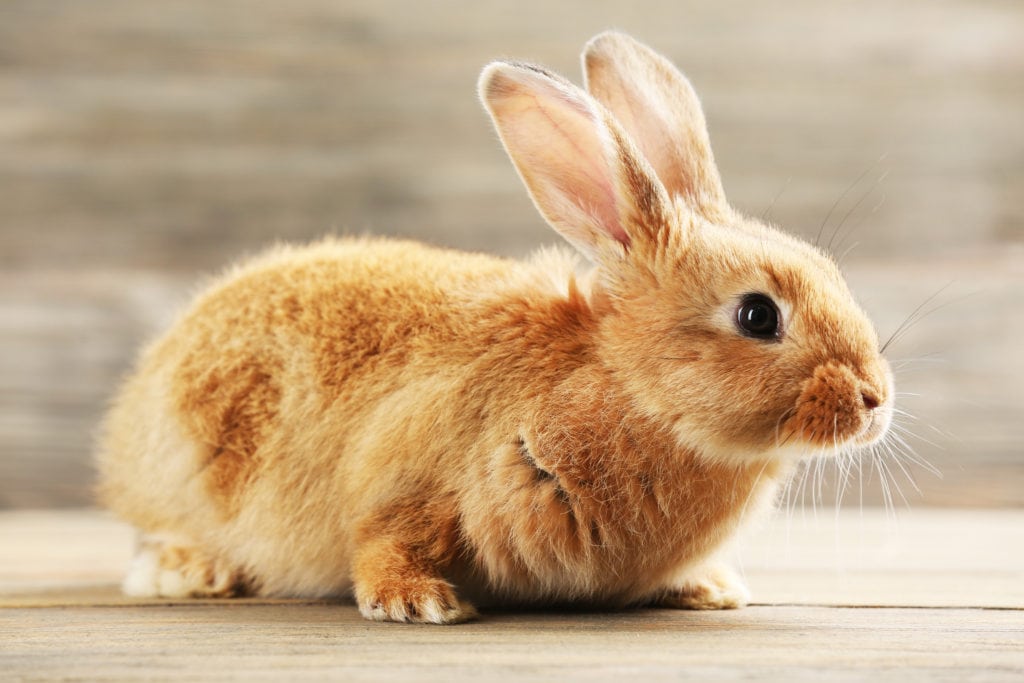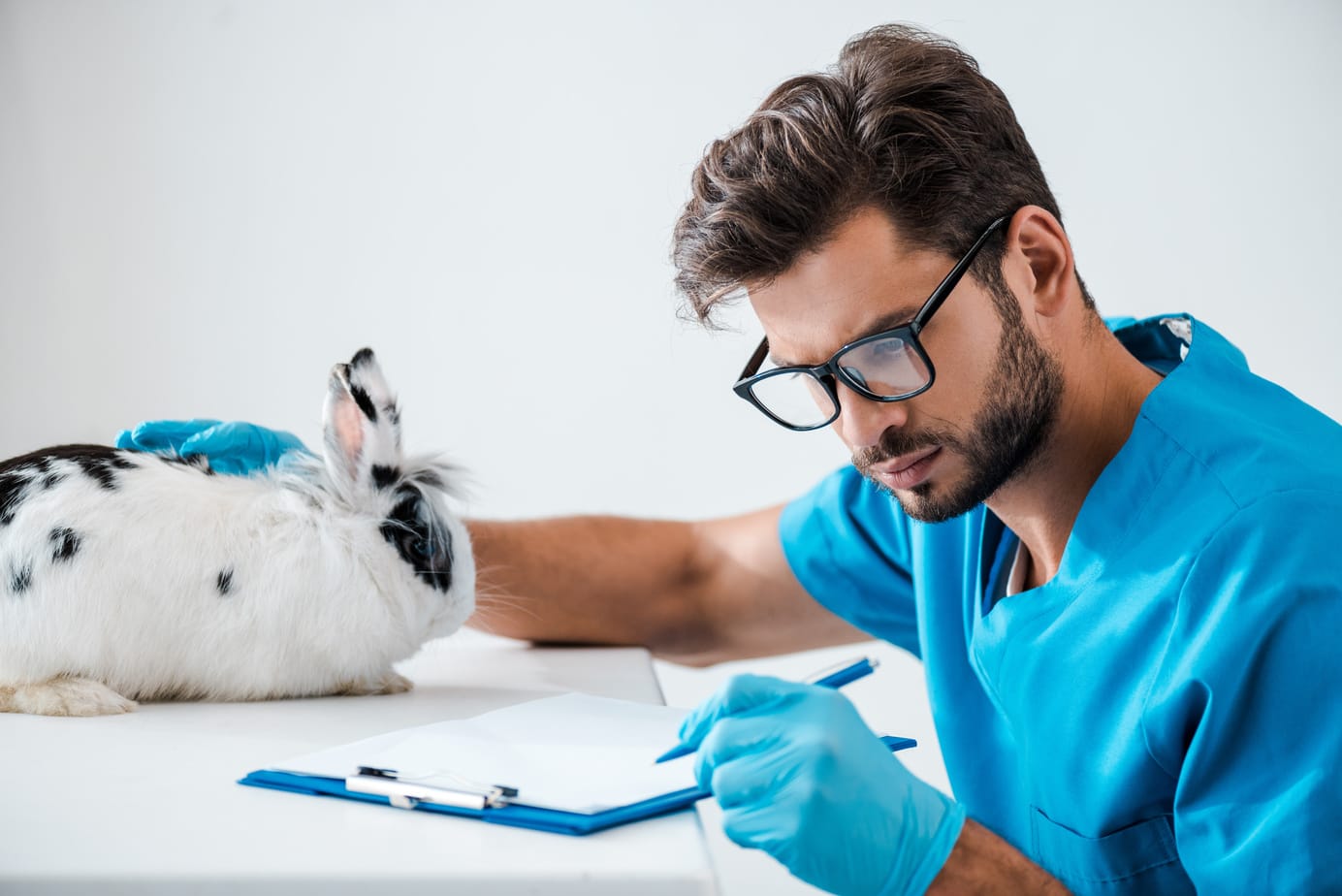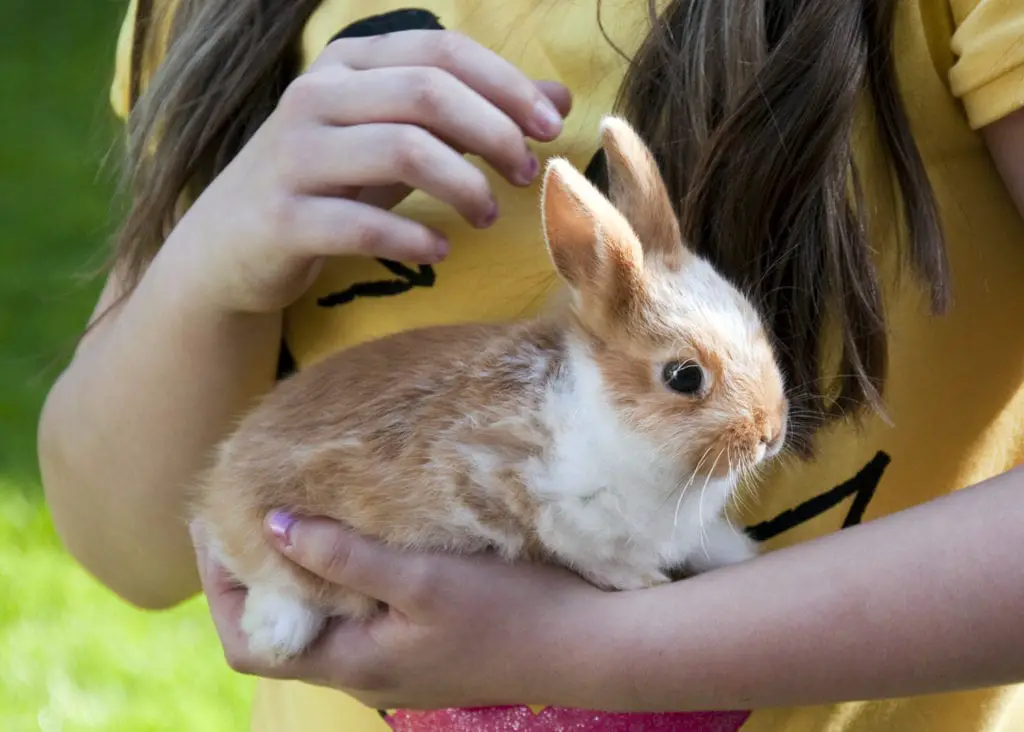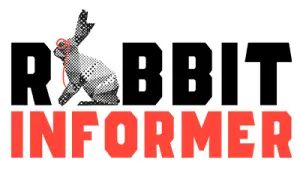
Any changes in your rabbit’s health can be scary, especially with a condition as serious and permanent as blindness. While there will be cause for adjustment to its lifestyle, your rabbit can still live a long and fulfilling life without its eyesight.
If your rabbit is blind or visually impaired, it will be sensitive to sudden noises, slow to respond to visual stimuli, and hesitant to move about unusual areas. Their eyes can also be swollen, cloudy, or receding. If you suspect any of these in your rabbits, visit a vet to confirm.
Below, the symptoms and causes of your rabbit’s blindness will be explored.
Symptoms
There are 8 key clues or symptoms to tell if your rabbit is blind. Four of them are behavioral symptoms, and the other four are physical characteristics
Behavioral:
- Startled by noises
- Sudden noises can startle rabbits, as well as approaching noises from unusual visitors or sounds
- Slow, cautious movements
- If your rabbit can’t see, it can’t navigate. It is likely to move cautiously through spaces, even if they are somewhat familiar. In other cases, it will bump into things that obstruct its path
- Delayed responses to stimuli
- An immediate way to test if your rabbit can see is to wave your hand or move something into its field of vision. If there is no reaction, it is safe to assume your rabbit is visually impaired
- Nervousness or hesitation
- Even at gentle coaxing, your rabbit could express concern for moving, eating, drinking, and approaching you or other rabbits
Rabbits have a 360-degree field of vision, so if they are obviously not reacting to things that are entering or moving about in their line of sight, take note of it, as it can be a big clue to if they’re blind or not.
As with any concern about your rabbit’s health, consult a veterinarian to confirm your suspicions or to properly diagnose your pet. And certainly don’t try to take action in treating your pet on your own. It is safest for your rabbit to receive a trained medical opinion.
Physical:
- Receding eyeballs
- Dilated or cloudy pupils
- Redness
- Swelling
Some owners have noted a bluish color their rabbit’s eyes as well.
A change in the eye’s appearance can be alarming, but not all of those changes are painful to your rabbit. Consulting a vet can confirm whether or not their condition is painful.
From there, the vet can suggest forms of treatment, and even help you understand the cause of the condition.
Some conditions, like tumors, glaucoma, and parasites, can be very painful, so treatment is ideal to help your rabbit live a happy and healthy life. In some cases, your rabbit may need its eyes removed, but it will still be able to have a relatively normal rabbit life.
Causes
- Age
- Rabbits, like humans, can experience blindness in their old age
- Genetics
- Sometimes, a rabbit can be born blind, especially if it has a predisposition for blindness genetically
- Abscesses
- This eye condition is actually caused by poor dental health. Avoid this by taking good care of your rabbit’s oral hygiene
- Tumors
- A tumor in or around the eye or brain can impede the sight of a rabbit. Tumors might be a noticeable lump in the rabbit’s head. An x-ray can also determine if a tumor is present
- Trauma
- If a rabbit has survived an injury or accident that negatively impacted its head and brain, it can develop a visual impairment
- Glaucoma
- Fluid build-up can increase pressure and decrease visibility
- Invasive causes
- Parasites, bacterias, and viruses can lead to blindness because they afflict a rabbit in such a way that their eyes and heads can swell, or cause abscesses that cause blindness. Additionally, infections can damage the delicate parts of the rabbit’s eye, thus inhibiting its vision.

The best way to ensure your rabbit’s health is to take its health seriously in all areas. There are few things you can do to prevent or change age and genetic predisposition, but vaccinating and taking your rabbit for check-ups will give your rabbit a better chance at staying healthy.
Regular vet visits can also help you anticipate care your rabbit might need, as well as how to treat any health problems that might present themselves in your rabbit.
Prior to visiting the vet, take note of recent symptoms, like expressions of pain, watery eyes, eyes that are closed for prolonged periods of time, sensitivity to light and movement, and unusual eye movement. A log of these symptoms and behaviors can make it easier for your vet to diagnose the problem in your rabbit.
If you are concerned about your rabbit’s eyesight but have determined he is not completely blind, you may benefit from reading my article How Good is a Rabbit’s Eyesight? Myths vs. Facts. This article goes into detail to explain the benefits (or non-benefits) of eating carrots and if a rabbit’s eyesight is, in fact, impacted by their diet.
Further Care
Having a blind rabbit can be an unexpected adjustment, to your rabbit’s life, and to yours. And while it is an adjustment, it is mostly one of the protocols of your rabbit’s life. With the exception of any veterinary costs, there is little to no financial difference between a rabbit with eyesight and a rabbit without eyesight.
Unless there is an extraneous reason in your own life, which only you can determine, there is no reason to get rid of your rabbit just because it is blind.
There are many ways to keep your rabbit safe and healthy with its impairment that don’t excessively upset your routine.
In the event that the blindness is a process, rather than immediate, contact your rabbit’s vet first and foremost. With their input, you’ll know how to systematically change your rabbit’s lifestyle.
Stress and Stimuli
Minimize the stress levels your rabbit can experience, such as things it could run into, and move their food and water dishes to places of few hazards. Sharp objects especially should be kept out of the rabbit zone.
The key to managing any rabbit’s life is to manage its stressors. This is even more important with an impaired rabbit, as it has fewer faculties to adapt to stimuli and new surroundings.
Chewing Habits
Blind rabbits are more likely to chew at things as a way to acquaint themselves with their surroundings. For this reason, make sure that your house is safe in terms of chewable and choke-able things.
In this way, you are creating a safer environment wherein your rabbit can act independently and feel like it still has a normal life.
Sense of Smell
A blind rabbit will rely heavily on its sense of smell to navigate, and heavy perfumes or house fragrances from candles and air fresheners can interfere with that.
What’s more, you can use things with their scent on them to guide them to their spaces, such as their bed and litter box. That helps acquaint them with their surroundings. Here’s Why Rabbits Smell Each Other’s Bum! is a lighthearted article I wrote explaining the importance of a rabbit’s sense of smell.
If your rabbit gets lost while it’s playing or exploring, reorient them by carefully replacing them in their usual spaces, like their bed or cage. This is a grounding and calming experience for the rabbit.

Emotional Support
Having a person they’re bonded to can be extremely comforting. The familiarity of its bond will make its adjustment period less jarring and scary. Your presence will keep the rabbit calm, and therefore, safe.
However, a rabbit that is born blind is less likely to bond with a human. This is because it lacks the trust that comes with being able to make visual contact with its person and its surroundings.
In this case, a rabbit shelter or breeder can help you find another rabbit to act as a companion to your bunny. This also helps bond your rabbit to your presence.
Feeling Used?
Does your rabbit only come for treats? My article Rabbit Only Comes for Food? Six Better Ways to Bond will help you esablish a solid companionship with your rabbit that isn’t based off appetite or alluring treats.
Normalcy of Routine
Normalizing the times at which you clean your rabbit’s cage and feed it helps your rabbit remain calm during daily activities. Maintaining a routine keeps its expectations stable so it is less likely to panic and hurt itself.
Visitors and new spaces can also negatively impact your rabbit. It is smart to gently introduce any rabbit to new situations, but it is important to take extra care when introducing an impaired rabbit.
One way to prepare your rabbit for new environments and people is to first acquaint it with scents. Start small, with cloth objects that hold signature scents. After a few experiences with it, the rabbit will be more prepared to be in a place where the scent is stronger.
Right away, your rabbit will not be ready for long exposures to new people and places, but with patience and a gentle hand, it is possible.
Normalcy of Sound
Blind rabbits also respond well to familiar sounds, such as the voices of their bonded humans and the common noises of their house, like the clatter of food and the opening of its cage door.
For as frightening as new sounds can be, familiar sounds are comforting.
Gently talking to your rabbit can feel silly, but your rabbit could respond positively to it. They enjoy the connection, the soothing ness, and the familiarity of your presence.
Another idea that feels funny but is worth the risk is talking softly when approaching your rabbit. When it is aware that you are near, it can anticipate your touch and your presence, which might be accompanied by other noises and vibrations.
And again, knowing you are near will be comforting!
Living Life
Though the adjustments can seem drastic, the change can be a positive one for both you and your rabbit.
Though the routine might become normal, it is important to remain vigilant in the care of your blind rabbit so it remains healthy.
Being lax about caring for your rabbit can cause stress. Additionally, if its blindness is caused by an infection or illness, casual care can worsen your rabbit’s condition and cause it further pain.
But if you remain attentive and careful, your rabbit can have a long and happy rabbit life!
